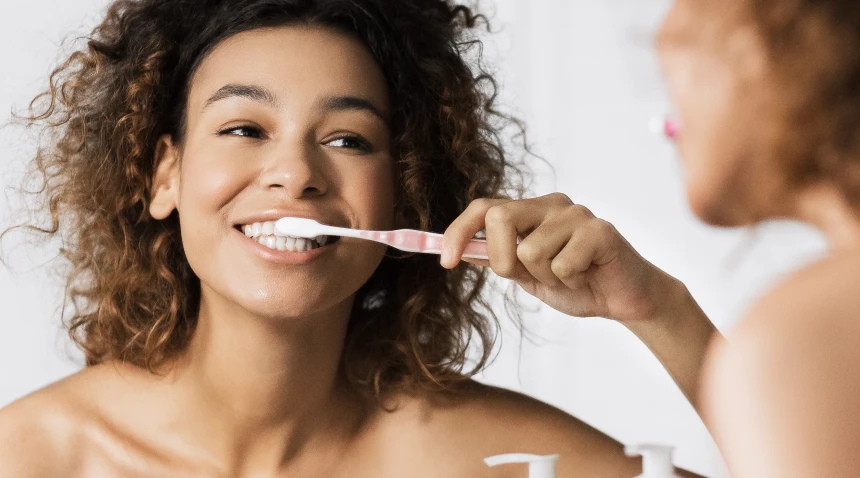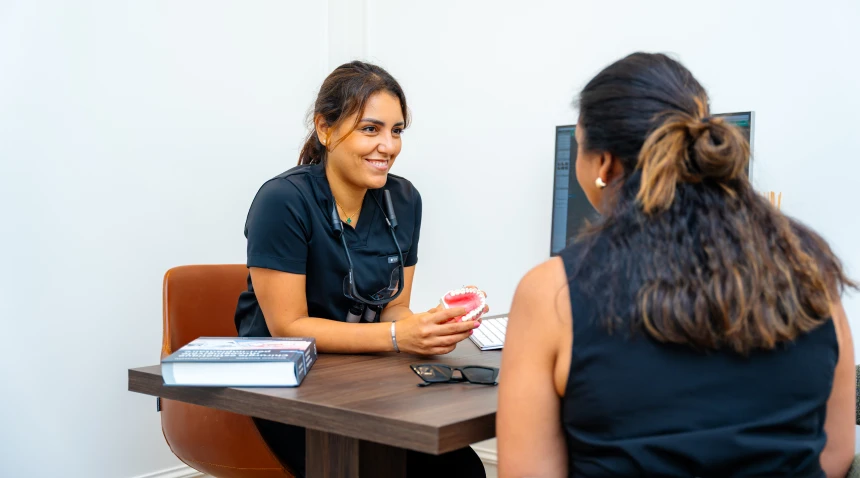After a dental procedure, the first few days play a crucial role in healing and comfort. By carefully following your dentist’s recommendations and adopting appropriate habits, you create the best possible conditions for a smooth, complication-free recovery. These post-operative instructions will guide you step by step, helping you navigate this period with peace of mind.
The first hours after the procedure
Immediately after surgery, your dentist will usually place a sterile gauze pad over the treated area. Keep it in place for the duration indicated, typically between 30 minutes and 1 hour. If slight bleeding continues, replace the gauze with a new one and apply gentle pressure by biting down softly.
Avoid eating or drinking for the first two to three hours to allow a blood clot to form. This clot is essential for proper healing and must remain in place.
Managing pain and reducing swelling

It is normal to experience mild discomfort or swelling after the procedure. Take the prescribed painkillers at regular intervals, even if the pain seems manageable, to stay ahead of any discomfort.
To reduce swelling, apply a cold pack wrapped in a clean cloth to the cheek, alternating 15 minutes on and 15 minutes off. This is most effective during the first 48 hours.
Avoid exposing the treated area to direct heat, as it can increase inflammation.
Adapting your diet
Your diet directly influences the quality of healing. For the first few days, choose soft, lukewarm foods such as mashed vegetables, applesauce, yogurt, scrambled eggs, and soups. Avoid foods that are too hot, spicy, acidic, crunchy, or sticky, as they could irritate the surgical site.
Whenever possible, chew on the opposite side of your mouth to avoid putting pressure on the treated area. Gradually reintroduce firmer foods as your comfort improves.
Maintaining gentle oral hygiene
Good hygiene is essential to prevent infection. Starting the day after the procedure, brush your teeth with a soft toothbrush, being careful to avoid the operated area at first. Clean gently to protect the healing tissues.
If an antiseptic mouthwash has been prescribed, use it as recommended, usually after meals, and do not extend its use beyond the advised duration. Excessive use could disturb the oral flora balance.

Rest and physical activity
Rest promotes recovery. Avoid intense physical activity, sports, and lifting heavy objects during the first few days. Such efforts may cause bleeding or delay healing.
When sleeping, keep your head slightly elevated with an extra pillow. This position helps reduce swelling and improve nighttime comfort.
During the day, prefer calm moments and avoid stress, as a well-rested body heals more effectively.
Warning signs requiring prompt contact with the clinic
Certain signs should alert you and prompt you to contact your dentist quickly:
- Significant bleeding persisting despite compression
- Pain that increases or persists despite painkillers
- Swelling that worsens after 48 hours
- Fever or general malaise
- Unusual discharge with a bad odor
By reacting quickly, you can prevent a problem from worsening and protect the healing process.
Following procedure-specific recommendations

Each surgical procedure has its own particular precautions. They may include avoiding vigorous mouth rinsing, protecting certain areas while chewing, or avoiding certain head positions.
These specific post-operative instructions, given to you during your appointment, must be followed carefully to ensure optimal healing.
The importance of post-operative follow-up
Follow-up appointments allow your dentist to check the progress of healing, remove stitches if necessary, and adjust recommendations.
Note any discomfort, unusual sensation, or change so that you can discuss it during these visits. Your involvement in this follow-up directly affects the quality and durability of the result.
Gradually resuming your habits
Over the days, you can resume your usual activities while staying attentive to your body’s signals. Continue to maintain good oral hygiene and a balanced diet.
If you have any doubts, even minor ones, contact your dentist for personalized advice. This vigilance helps prevent any delay in healing.
Attentive and personalized care
By following all these post-operative tips, you actively contribute to the success of your treatment and your daily comfort. Every action counts: rest, suitable diet, careful hygiene, and regular medical follow-up.
For any questions or support after a procedure, you can contact the Cabinet Mirabeau in Paris 16, where a team is dedicated to your recovery with care and attention.
You may also like: Post-operative advice